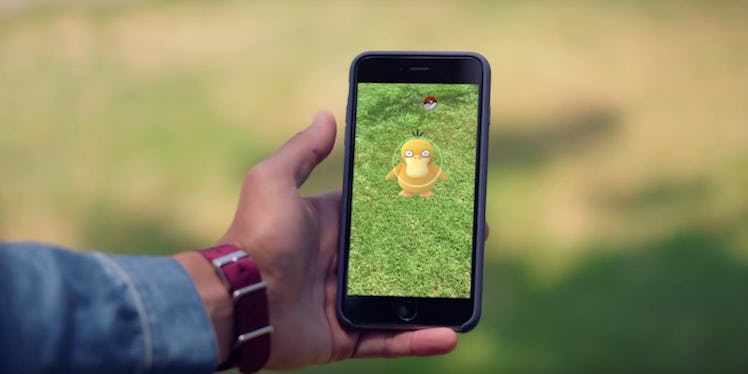
This Post Explains Why It's Hard For Black People To Enjoy Pokémon Go
Between the fatal shootings of Alton Sterling and Philando Castile and the killing of five police officers in Dallas, it's been a very tough week or so for America.
Tensions are high, people are understandably distraught and we're all desperately hoping for an end to the violence that continues to plague this country.
During trying times such as these, it's tempting to look for a distraction.
For many people, this has occurred in the form of Pokémon Go, a mobile game that offers a satisfying blend of physical activity and nostalgia. If you've played it, you know it essentially requires you to wander around like a person who's lost his or her mind in search of Pokémon and related items.
If you happened to meander into a park over the weekend, you might've seen numerous adults walking in circles while staring at their phones. They were probably playing Pokémon Go.
Many people between the ages of 18 and 30, which appears to be the demographic that's become most obsessed with this new trend, probably played the original Pokémon games years ago. So, Pokémon Go essentially permitted them to feel and act like kids again, which is pretty comforting when events in the real world have become difficult to bear.
While people often use their smartphones to avoid others in public, the game also achieved the difficult task of bringing them together.
But, a recent blog post to Medium from Omari Akil put into perspective why it's harder for black Americans to fully enjoy the childish delights of Pokémon Go.
The game might be fantasy, but given it forces people to walk around in the real world, where black Americans, particularly black males, are too often viewed as inherent threats, it's literally dangerous for black people to play.
Akil downloaded Pokémon Go, and initially found both comfort and enjoyment in it, as many of us who've played it have.
But, as he explained, this soon changed.
He wrote in his post on Medium,
When my brain started combining the complexity of being Black in America with the real world proposal of wandering and exploration that is designed into the [gameplay] of [Pokémon Go], there was only one conclusion. I might die if I keep playing. The breakdown is simple: There is a statistically disproportionate chance that someone could call the police to investigate me for walking around in circles in the complex. There is a statistically disproportionate chance that I would be approached by law enforcement with fear or aggression, even when no laws have been broken. There is a statistically disproportionate chance that I will be shot while reaching for my identification that I always keep in my back right pocket. There is a statistically disproportionate chance that more shots will be fired and I will be dead before any medical assistance is available.
Akil's words are stinging, but not untrue.
Last year, out of the 1,134 people killed by US police, young black males were killed at the highest rate.
Overall, black people were killed at more than twice the rate of whites in 2015.
Something needs to change… like yesterday.
Black people in America are disproportionately impacted by the criminal justice system. They're far more likely to be killed by police, pulled over and incarcerated, in spite of only comprising roughly 13 percent of the US population.
The sad fact is we've seen black Americans executed on the street for selling cigarettes and CDs.
Unfortunately in this context, Akil's trepidations about playing a video game in public are warranted.
It's fun to escape into a fantasy world, but, as a country, we're all going to have to confront reality together sooner or later. Hopefully sooner.
Read Akil's full post here.
Citations: Warning: Pokemon GO is a Death Sentence if you are a Black Man. (Medium), Young black men killed by US police at highest rate in year of 1,134 deaths (The Guardian), The Disproportionate Risks of Driving While Black (The New York Times), CRIMINAL JUSTICE FACT SHEET (NAACP), Quick Facts (United States Census Bureau)